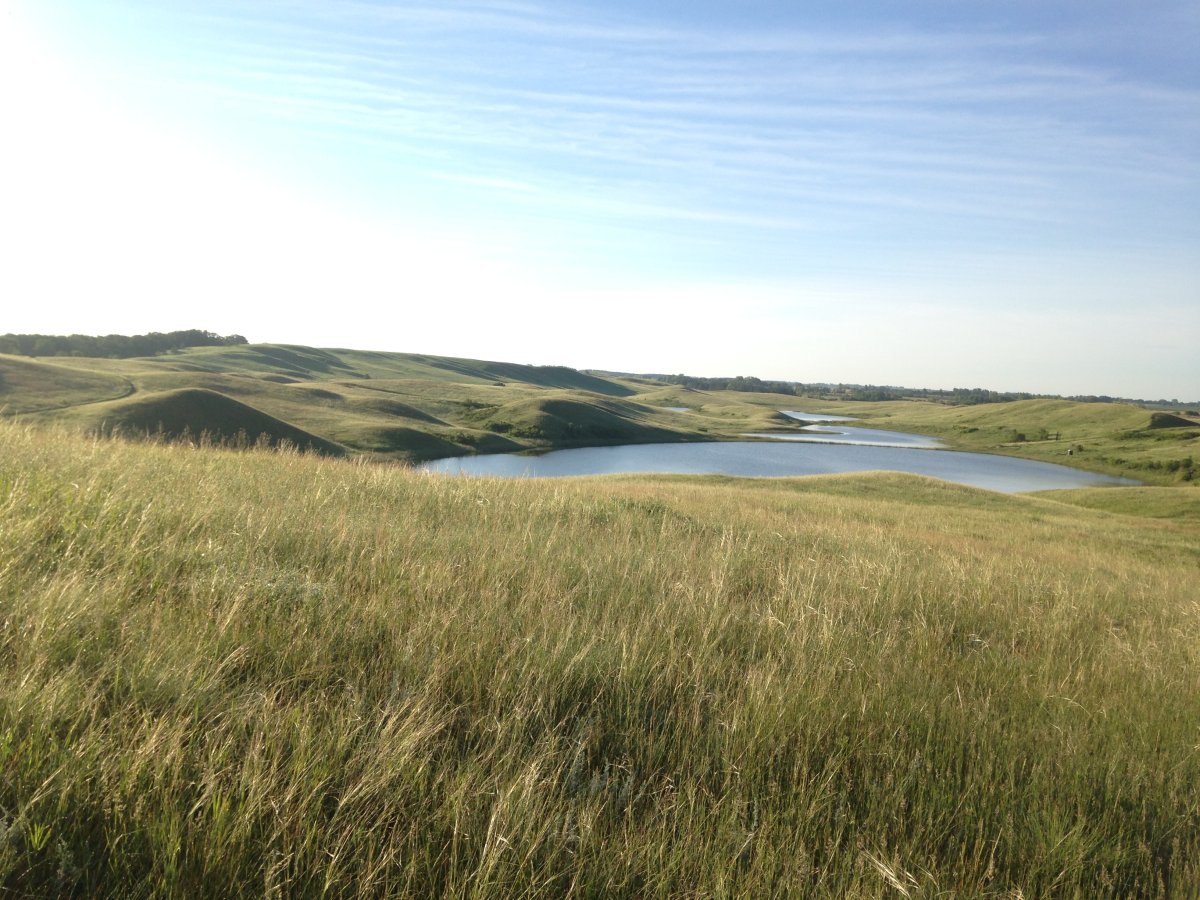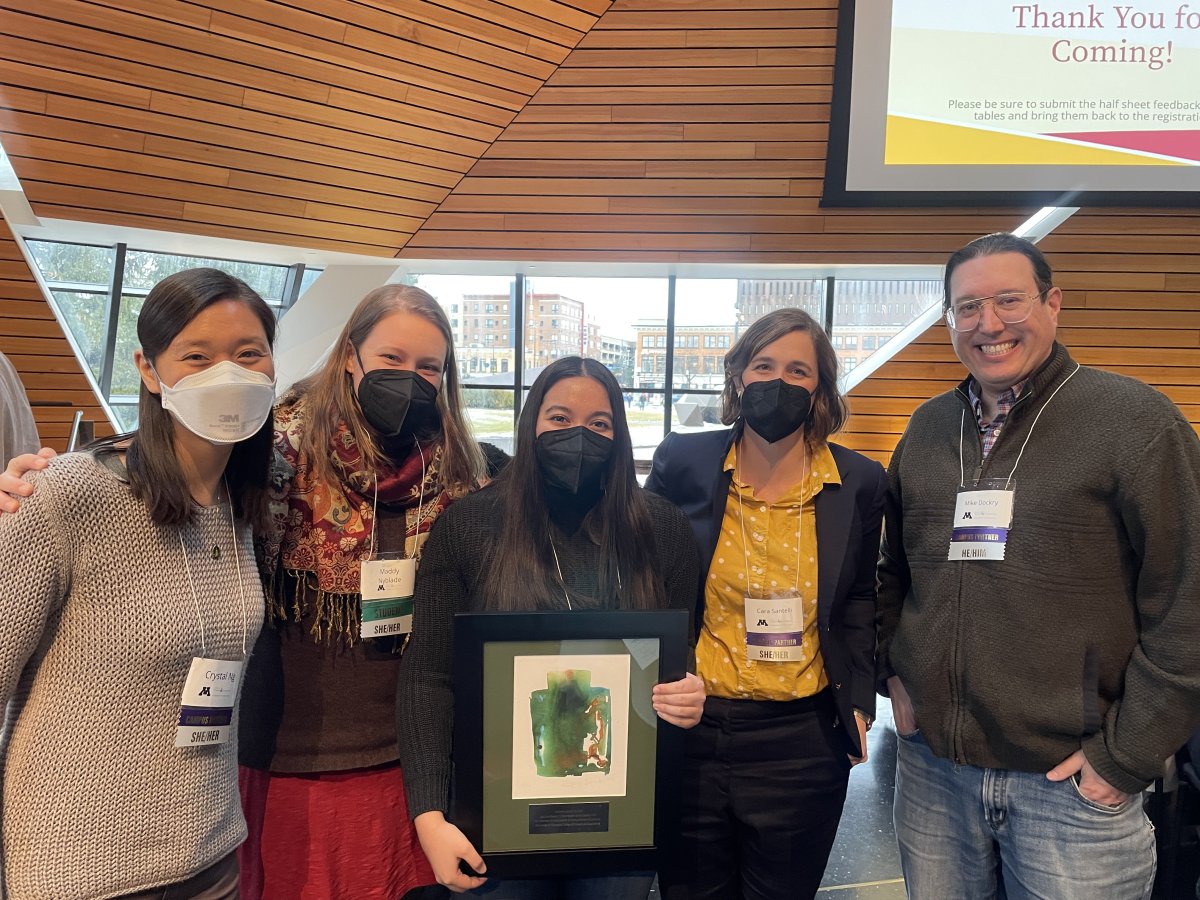Commitments To Indigenous Peoples And Their Lands

Commitments To Indigenous Peoples And Their Lands
The University of Minnesota-Twin Cities campus occupies stolen Dakota lands that were acquired through legalized land theft and the government-mandated dispossession and exile of the Dakota people from the state of Minnesota. We will be developing a departmental Land and Water Acknowledgement, but we are first ensuring that this is preceded and substantiated by tangible commitments towards conducting work and research that is accountable to the Indigenous peoples of the lands where our activities take place. Please read our Interim Departmental Statement of Intent.
Confronting Colonization in the School of Earth & Environmental Sciences
In the 1800’s, the state of Minnesota and the U.S. Congress negotiated a series of treaties with Dakota tribes, abrogating the treaties after the U.S.-Dakota War of 1862. This led to the legalized (and violent) theft of Dakota land and government-mandated dispossession and exile of the Dakota people from the state of Minnesota. The University of Minnesota was endowed with Dakota lands ceded under duress through the Morrill Act of 1862. Today, the University of Minnesota and the School of Earth & Environmental Sciences, which includes the Department of Earth & Environmental Sciences and several research centers, still occupy and work on these stolen Dakota lands— as well as Ojibwe lands throughout the state stolen through similar means–and benefit from this colonial legacy.
The last two years have seen increased recognition of an ethical imperative within the School of Earth & Environmental Sciences to develop actionable priorities for increasing accessibility, diversity, inclusion, and belonging in all aspects of our mission. In May 2021, the University’s Institute for Diversity, Equity, and Advocacy (IDEA) awarded a grant to initiate research on the history of the department and consult with Indigenous educators and leaders around developing appropriate and meaningful actions for improving how the School operates and conducts teaching and research. The grant, co-written by Crystal Ng, Donna Whitney, and Cara Santelli with input from Gabriela Ines DeLisle Diaz (BA ’21, CHamoru and Pohnepeian), facilitated the hiring of Diaz to oversee these efforts. With a primary background in American Indian Studies and minor in Environmental Geoscience, Diaz possesses a unique skillset and passion for helping the School develop a long-term vision to carry out its core mission in ways that respect the sovereignty of Indigenous nations, account for past and ongoing harms, and are accountable to the Indigenous peoples of the lands and waters where teaching and research is conducted. “[Our goal] is to put together a series of actionable commitments and invest in the work necessary for more ethical and responsible geoscience work on Indigenous lands and waters,” explains Diaz.
Last summer, Diaz, Ng, and Whitney had a series of meetings with Iyekiyapiwin Darlene St. Clair (Lower Sioux Indian Community and Associate Professor at St. Cloud University), An Garagiola (Bois Forte Band of Chippewa, MA Candidate in Public Policy UMN TC), and Karen Diver (Fond du Lac Band of Lake Superior Chippewa and UMN’s Inaugural Senior Advisor to the President for Native American Affairs). These conversations were instrumental for understanding the problematic aspects of institutional land and water acknowledgements, which too often result in placing the act of dispossession and other harms in the past-tense, avoid addressing colonial histories, and ultimately fail to advance change through substantive actions.
These and other topics were brought to the School at large in a series of three open workshops this past fall. The workshops, attended by faculty, staff, researchers, graduate students, and undergraduate students, focused on themes of sharing information about past and current efforts in the School, learning about the need for a set of commitments and a meaningful Land and Water Acknowledgement, and discussion about producing a set of written long-term commitments. Engagement in these workshops spanned all units within the School of Earth and Environmental Sciences. This approach received national attention in a presentation at the Fall 2021 annual meeting of the American Geophysical Union (AGU) in New Orleans, LA. Related work was featured in an article in AGU’s science news publication, Eos, by graduate student Maddy Nyblade and the Minnesota Geological Survey’s Jenn McDonald. On March 30, Diaz was recognized by the College of Science and Engineering as a 2022 recipient of a Staff Achievement Award for her work with the department.

In the current phase of planning, a working group comprised of faculty, researchers, staff, and graduate students convened this semester to develop a resource guide and refine actionable commitments drafted in the Fall’s School-wide workshops. These resources and commitments will include support for developing ethical practices for conducting fieldwork, mechanisms and best practices for appropriately engaging with Tribal communities, and suggestions for identifying settler colonialism values in teaching practices and the curriculum. Riley Schmitter (BA ‘21, Chickasaw Nation), a graduate from the Environmental Geosciences program, has joined the leadership team in this effort.
Additionally, undergraduate students are now able to take select American Indian Studies classes as technical electives for their Earth Sciences degree. Consultation with regional employers in the Earth sciences and environmental geosciences indicated that they value employees with knowledge, awareness, and skills taught in these classes. Therefore, including these courses as technical elective options aligns with the Department’s goal to provide relevant career-development opportunities within our academic programs.
Confronting colonization in Earth Sciences means accounting for past and ongoing harms inflicted on Indigenous peoples, lands, and waters by our institution and our discipline. It also means incorporating new practices in our classes, research, and outreach that acknowledge the harms, honor tribal sovereignty, and is reparative for and supports Indigenous peoples and land. A core mission of the Department of Earth & Environmental Sciences is the training the next generation of geoscientists. Whether our students go on to work for state or federal agencies, private companies, academia, or beyond, we have a responsibility to equip them to be technically savvy critical thinkers and ethical scientists and people. Efforts to confront colonization in the Department and in the School as a whole are inextricably linked to the vision of a more just, ethical, diverse, and welcoming discipline.
“We are at a critical stage in this work,” says Ng. “[To advance change,] commitments must become action.”